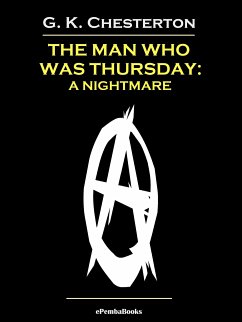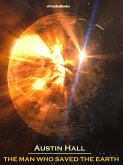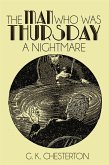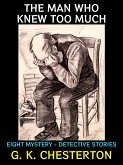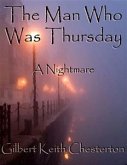- This edition includes the following editor's introduction: G. K. Chesterton, the man beyond the writer
First published in 1908, “The Man Who Was Thursday: A Nightmare” is a metaphysical thriller by English writer G. K. Chesterton. The novel weaves together elements of mystery, comedic farce, and allegory around the threat of anarchy in turn-of-the-century London. Ostensibly about a secret policeman investigating anarchists, it becomes a surreal and philosophical novel.
“The Man Who Was Thursday: A Nightmare” takes place in Edwardian London, where a poet infiltrates the anarchist underground. Elected to the post of Thursday on the anarchist council, masterminded by the monstrous Sunday, the poet tries to prevent an anarchist assassination in Paris. But when the plot takes a surreal turn, he is left unsure who to trust and even what is real.
For over a century after its publication, “The Man Who Was Thursday: A Nightmare” inspired numerous adaptations, including a 1938 Mercury Theatre radio-play written by Orson Welles.
Dieser Download kann aus rechtlichen Gründen nur mit Rechnungsadresse in A, B, BG, CY, CZ, D, DK, EW, E, FIN, F, GR, HR, H, IRL, I, LT, L, LR, M, NL, PL, P, R, S, SLO, SK ausgeliefert werden.

